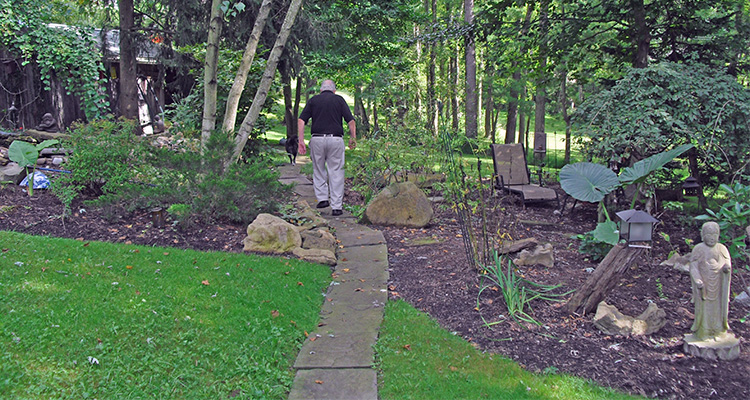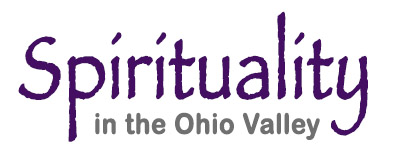 Editor’s note: As part of a continuing series on how Wheeling residents express spirituality, today’s post features an area man who — like a growing number of Americans — embraces a mix of faith traditions.
Editor’s note: As part of a continuing series on how Wheeling residents express spirituality, today’s post features an area man who — like a growing number of Americans — embraces a mix of faith traditions.
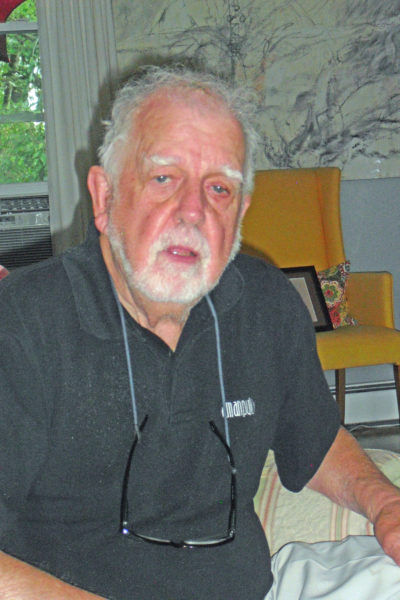
Bill Hogan’s house is the place where the stone Celtic cross sidles up to a figure of Buddha. Where a vintage stained-glass window is displayed in a wild, wall-covering mix of art that includes a psychedelic violin, a deeply pigmented pastel of Southwestern mountains and a life-sized human figure with rams’ horns sitting crossed-legged just off the living room.
“I still call myself a Catholic,” said Hogan, 89. Yet, Hogan, like a growing number of Americans, mixes that branch of Christianity with other faith traditions including Buddhism and 12-step tenets gleaned from addiction-recovery programs.
Inspired by viewing a crystal display at the Carnegie Museum, he sees this blend as comparable to the rainbow spectrum revealed when bright light shines through. “They are all integral, beautiful parts of the white beam, which I believe is a power greater than myself.”
Unorthodox? Yes. But Hogan’s blended faith is not uncommon in the U.S., according to a recent study by the Pew Research Center Forum on Religion and Public Life. That 2009 survey revealed large numbers of Americans (35 percent) cross denominational and even faith boundaries in attending worship services. And “many also blend Christianity with Eastern or New Age beliefs such as reincarnation, astrology and the presence of spiritual energy in physical objects.”
The faith blenders, the Pew study found, account for more than one-fifth of all self-described Christians. Among this group, Catholics and mainline Protestants are more than twice as likely as evangelical Protestants to embrace a mix of faith traditions.
A Long, Winding Road
Hogan’s childhood did not suggest such diversity was ahead.
“It was a Norman Rockwell Saturday Evening Post cover type of life,” he said of a family tradition that revolved around the rituals and seasonal rhythms of Roman Catholicism. Not to mention 17 years of Catholic education that topped off with an art and philosophy degree from Notre Dame University.
Referring to recently-revealed sex scandals in Catholicism, Hogan said his experience was in no way negative. Serving as an altar boy is a fond memory, he said with a chuckle. He recalled an incident in which a German priest calmed last-minute jitters at his inaugural Mass by reminding him one critical Latin prayer, “Ora pro nobis,” sounds remarkably like, “Oh, rub your noses.”
Happy memories and heritage, but, Hogan said, even then, some “church certainties” bothered him. Noting he feels somewhat envious of individuals who do feel that surety, he has concluded, “that really didn’t make a lot of sense to me.”
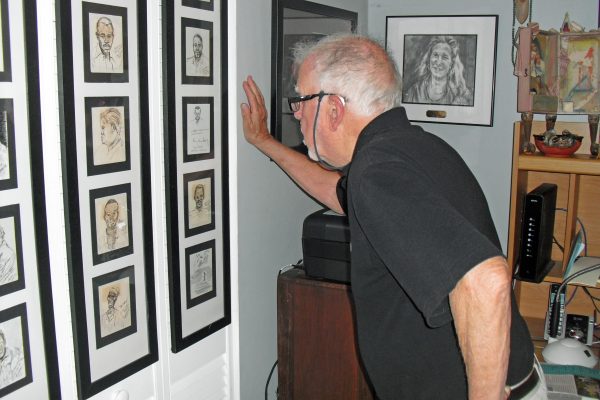
His uncertainty of belief was severely tested by a long bout with alcoholism that, at its bottom point, left Hogan hopeless. “I drank myself to the point where I weighed 120 pounds, and I was in a state of depression.” Fired from his job and wanting to die, Hogan loaded a shotgun and went outside to kill himself.
A mystical experience he calls his “first little miracle” stopped him. “A pinpoint of light. I knew there was a way out. I didn’t know what it was, but I knew it. An undeserved gift.”
Over several days, Hogan said he experienced a rebirth, not in the evangelical Christian sense, but more like re-entering, “another universe in the same place.” Sober 47 years as of last month, he credits this insight to the higher-power-embracing, serenity-pursuing philosophy of 12-step addiction-recovery programs.
“My fellowship with other people in recovery rekindled my faith and is the cornerstone of whatever I now have,” he said. “I am more comfortable in my confusion in recovery groups than I ever was before.”
A New Twist
Hogan encountered a third spiritual expression about 15 years ago when one of his six children began exploring Eastern and New Age religion.
Wanting to understand what was going on in his daughter’s life, he traveled to the Southwest, where she was attending worship services that incorporated everything from Jewish ritual to Sufi dancing. “They celebrate them all as long as you’re honest.”
Eventually, the daughter settled into Buddhism, moving to a small town in Colorado that Hogan said attracts everyone from Buddhists and Hindus to Roman Catholics and woodsy Episcopalians.
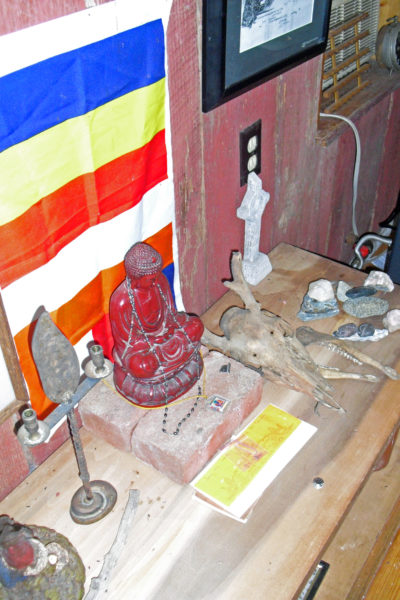 Hogan was intrigued. “It looks like a run-down Class B cowboy movie set,” he said of the town. “But it seems to be like a spiritual vortex. It attracts all kinds of people.”
Hogan was intrigued. “It looks like a run-down Class B cowboy movie set,” he said of the town. “But it seems to be like a spiritual vortex. It attracts all kinds of people.”
Residents, whom Hogan describes as young, well-educated and all seeming to be running businesses off laptops, include not only Hogan’s daughter but one son. The son relocated from Morgantown — and converted to Buddhism — after traveling west to build a straw-bale, passive-solar home for his sister.
“I don’t consider myself a Buddhist,” Hogan said. “But I’m very proud of the fact that my two children are.” While not fully Buddhist, he noted he now fully embraces certain Eastern ideas in his blended faith.
What does he like about Buddhism? The idea that each person has to find his or her own path, for one. Also, the ideas that, “you can’t be positive in anyone else’s life until you clean up your own life and have a positive attitude,” and “energy is indestructible … never wasted. It just goes someplace else. An unaccepted kindness is not wasted. It makes the world a bit better someplace else.”
Now living out a form of faith that he compares to a three-legged milking stool, he said such diversity has spilled over into other areas of his life. For example, he takes his news as, “a triangulation of truth,” watching FOX, CNN and the BBC.
Reaching Out
How do others respond to this faith blend in a man some Wheeling residents know primarily for his advocacy of compassionate recovery programs for the addicted, particularly those caught up in the opioid epidemic?
“People don’t seem to mind when I speak of love and compassion,” Hogan said. “I’m not imaginative enough to figure it all out and, as I get older, I’m too lazy. I just relegate it all to mystery. Usually, that satisfies people.”
• Nora Edinger writes from Wheeling, W.Va., where she is part of a three-generation, two-species household. A long-time journalist, she now writes in a variety of print and e-venues, including her JOY Journal blog at noraedinger.com. Her first work of fiction, a Christian beach read called “Dune Girl,” is available on Amazon Kindle.


